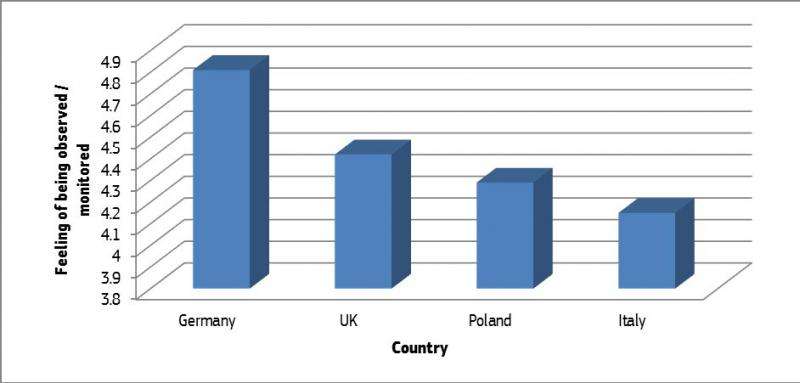Web design plays a role in how much we reveal online

How many people read online privacy warnings? Few probably do. Long, detailed and technical privacy notices are the current answer to one of the greatest privacy issues of our time: websites collect information about us all the time and we frequently allow it without really knowing or understanding the conditions. JRC scientists have found that web design, and the information shown on the screen, does influence how and whether a user discloses personal data.
A JRC study, "Nudges to Privacy Behaviour: Exploring an Alternative Approach to Privacy Notices", used behavioural sciences to look at how individuals react to different types of privacy notices. Specifically, the authors analysed users' reactions to modified choice architecture (i.e. the environment in which decisions take place) of web interfaces.
Two types of privacy behaviour were measured: passive disclosure, when people unwittingly disclose personal information, and direct disclosure, when people make an active choice to reveal personal information. After testing different designs with over 3 000 users from the UK, Italy, Germany and Poland, results show web interface affects decisions on disclosing personal information. The study also explored differences related to country of origin, gender, education level and age.
A depiction of a person's face on the website led people to reveal more personal information. Also, this design choice and the visualisation of the user's IP or browsing history had an impact on people's awareness of a privacy notice. If confirmed, these features are particularly relevant for habitual and instinctive online behaviour.
With regard to education, users who had attended (though not necessarily graduated from) college felt significantly less observed or monitored and more comfortable answering questions than those who never went to college. This result challenges the assumption that the better educated are more aware of information tracking practices. Further investigation, perhaps of a qualitative nature, could help dig deeper into this issue. On the other hand, people with a lower level of education were more likely to reveal personal information unwittingly. This behaviour appeared to be due to the fact that non-college attendees were simply less aware that some online behaviour revealed personal information about themselves.
Strong differences between countries were noticed, indicating a relation between cultures and information disclosure. Even though participants in Italy revealed the most personal information in passive disclosure, in direct disclosure they revealed less than in other countries. Approximately 75% of participants in Italy chose to answer positively to at least one stigmatised question, compared to 81% in Poland, 83% in Germany and 92% in the UK.
Approximately 73% of women answered 'never' to the questions asking whether they had ever engaged in socially stigmatised behaviour, compared to 27% of males. This large difference could be due to the nature of the questions (e.g. about alcohol consumption, which might be more acceptable for males). It could also suggest women feel under greater social scrutiny or are simply more cautious when disclosing personal information.
These results could offer valuable insights to inform European policy decisions, despite the fact that the study has targeted a sample of users in four countries in an experimental setting. Major web service providers are likely to have extensive amounts of data on how slight changes to their services' privacy controls affect users' privacy behaviour. The authors of the study suggest that collaboration between web providers and policy-makers can lead to recommendations for web interface design that allow for conscientious disclosure of privacy information.
More information: ec.europa.eu/jrc/en/publicatio … oach-privacy-notices
Provided by European Commission Joint Research Centre

















